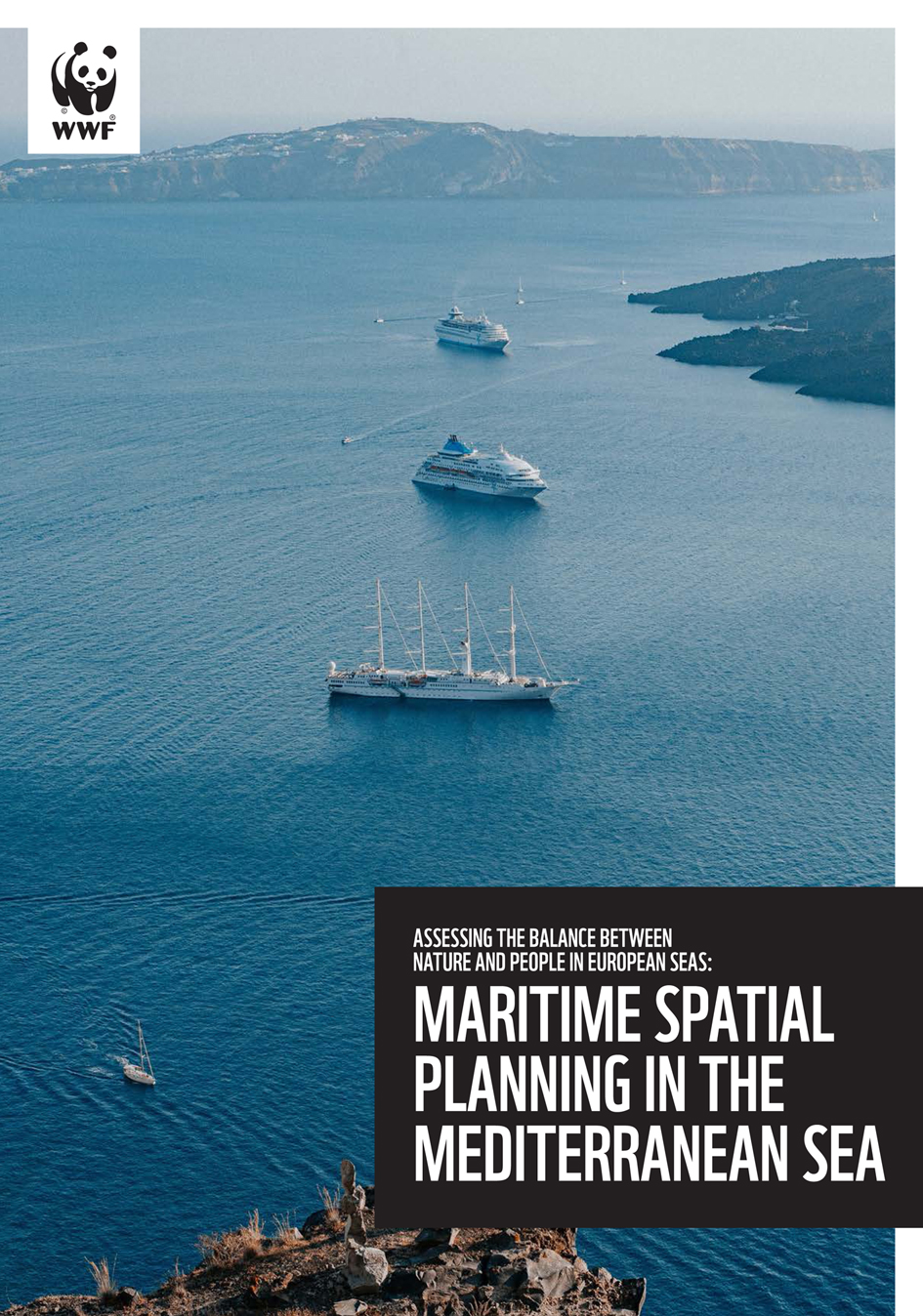
National maritime plans are misaligned within and across borders, fail to account for climate change, and are off track to achieve renewable energy and marine protection targets.
A new WWF assessment of maritime spatial planning (MSP) in the EU Mediterranean reveals the region is significantly lagging behind in applying an ecosystem-based approach to the long-term management of the basin.
Four Member States, Croatia, Cyprus, Greece and Italy, were not able to be assessed as they still have not implemented plans for their marine areas and are under infringement procedures by the European Commission for their failure to prepare these plans by the legal deadline of March 2021.
Of the Member States WWF was able to assess, the best-performing country in the assessment, Slovenia, still only ranked a partially-successful achievement (56%) for applying an ecosystem-based approach to managing its waters. If the unfinished plans (four out of eight) had been included in the analysis and given a 0% score for not being implemented, the regional average score for an ecosystem-based approach to MSP would plummet from 45% to 22%.
“At a time where our nature and climate are in crisis, maritime spatial planning in the Mediterranean is a catastrophe that puts job security, ecosystem services to mitigate climate change impacts and the future of one of our planet’s most iconic seas at risk,” said Dr. Antonia Leroy, Head of Ocean Policy at WWF European Policy Office. “To ensure the health of Mediterranean ecosystems, secure the vitality of maritime industries and deliver a sustainable blue economy, it is crucial that national plans be immediately developed where not already done. Existing plans must be improved, with particular focus on further investment in effective nature protection and restoration.”
The report also shows that no Mediterranean Member State is on track to achieve the European Green Deal objective to increase the total share of renewable energy to 40% by 2030, which will require further work to plan sites for offshore renewable energy development in alignment with EU environmental standards and legislation, and in balance with onshore energy deployment. In fact, Italy and Cyprus continue to designate space for fossil fuel extraction while simultaneously delaying the allocation of “acceleration areas” for offshore wind energy development.
Read full report here!
